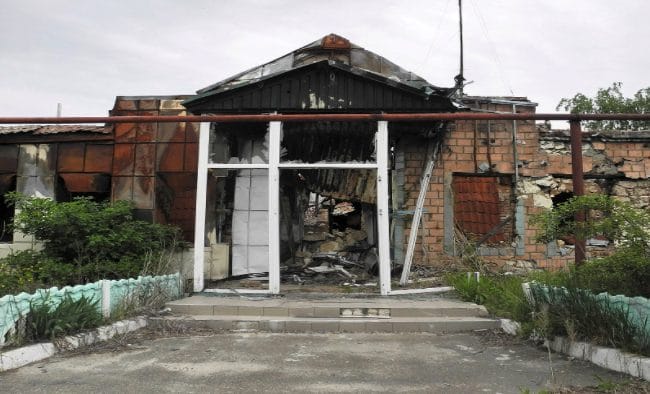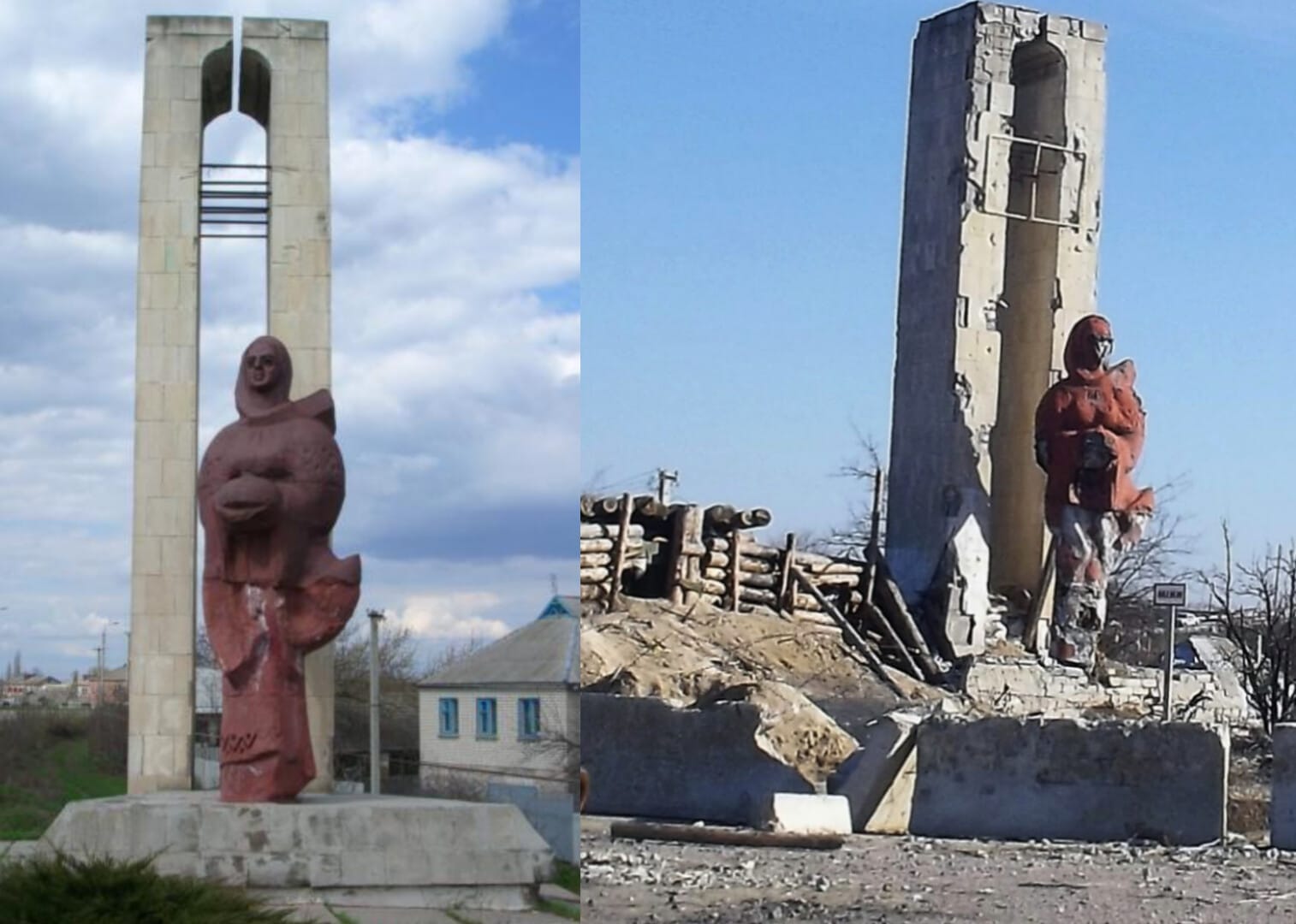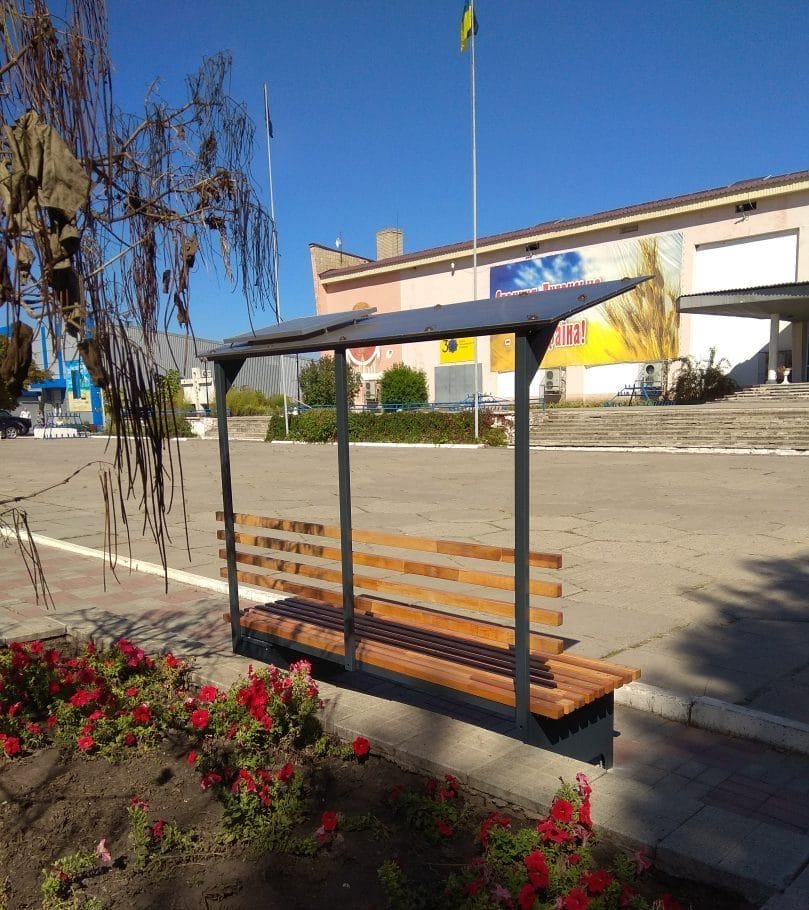This website uses cookies so that we can provide you with the best user experience possible. Cookie information is stored in your browser and performs functions such as recognising you when you return to our website and helping our team to understand which sections of the website you find most interesting and useful.
Stanytsia Luhanska Territorial Community

The Stanytsia Luhanska community is located in Shchastia Raion of Luhansk Oblast.
As a result of the decentralisation reform, on 12 June 2020 the Stanytsia Luhanska community was established through the merger of one town and three village councils of the raion. The community consists of 14 settlements, with the administrative centre being the town of Stanytsia Luhanska.
The total area of the community is 50.92 thousand hectares.
The population of the community as of 1 April 2021 was 24,897 people.


History
Stanytsia Luhanska, founded in 1688 by Don Cossacks, has a rich Cossack heritage reflected in the community’s symbols. It is known as a borderland with traditions of international cultural and trade relations. The community is famous for its hospitality, preservation of history, and the organisation of festivals and fairs that unite residents and attract visitors.



At the centre of the town stands a local history museum, which houses documents and household items. It presents the history of the Cossacks: from their military glory to the present descendants. The museum halls regularly hosted excursions, events for local residents and guests, and exhibitions of folk crafts such as painting and decorative arts.

In the floodplain forests of the Siverskyi Donets spread the lands of the Luhansk State Nature Reserve with a rich variety of flora and fauna.
Economy and Welfare
Almost half of the community’s lands (46.8% or 22.2 thousand ha) are designated for forestry, with a state forestry and hunting enterprise and 8 objects of the natural reserve fund located here. Part of the territory belongs to the Emerald Network “Siverskyi Donets River Valley” with an area of 134.9 thousand ha, created to protect rare species of flora and fauna.

Agricultural lands make up 35.8% or 18.23 thousand ha of the community’s territory.
The community is rich not only in fertile lands but also in significant deposits of natural resources: gas condensate, coal, germanium, sand, and mineral water.
There is a convenient transport network, including both road and railway routes.
Before the beginning of Russian aggression in 2014 and the full-scale invasion in 2022, employment in the Stanytsia Luhanska community was characterised by stability and diversity of economic activity. Both state and communal enterprises and private businesses operated, providing jobs for local residents and supporting economic development.
For centuries, residents of the community were known for growing vegetables, especially tomatoes and cucumbers. This was facilitated by proximity to the regional centre – the city of Luhansk – and the opportunity to sell products at markets in the industrial region of Donbas.
The main areas of economic activity of the territory included:
- Agriculture and processing – cultivation of grain and industrial crops, livestock farming, processing of agricultural products.
- Trade and services – retail and wholesale trade in food and industrial goods, provision of household services to the population.
- Transport services – freight and passenger transportation within and beyond the community.
- Construction and repair works – activities of construction teams, repair and construction enterprises.
- Educational and cultural institutions – functioning of schools, kindergartens, libraries, and cultural centres that ensured the development of human potential.
The community actively cooperated with entrepreneurs, organised meetings and fairs, promoting the development of small and medium-sized businesses. Before the occupation, economic life was characterised by gradual growth and a focus on expanding markets for products and services.
The Community and the War
Intense fighting in 2014–2015, lack of electricity and utilities, destruction and civilian casualties became severe trials for the community.





However, despite periodic escalations of hostilities in 2016–2018 and its location along the contact line with temporarily occupied territory, the community not only survived but continued to develop.
During the hostilities in eastern Ukraine from 2014 to 24.02.2022, the Stanytsia Luhanska community became a symbol of resistance and resilience. Local residents actively supported the Ukrainian military and fought for the liberation of their land from occupation. Many residents showed heroism and devotion to their country, assisting the Ukrainian Armed Forces and contributing to the restoration of the territory.

For a long time, the only crossing point between the part of Luhansk Oblast occupied since 2014 and the Government-controlled territory of Ukraine operated on the community’s territory. Stanytsia Luhanska was the first to welcome residents of the occupied areas on their way to free Ukraine.



Within the framework of the state project “Big Construction” and with the support of international programmes, many infrastructure facilities were reconstructed and repaired: hospitals, schools, kindergartens, the stadium, motor roads, etc. At the same time, energy-saving technologies and alternative energy sources were introduced. Modern waste management practices – sorting for further recycling – were actively implemented.







Residents engaged in vegetable growing, with the support of NRC and USAID, united their efforts and created the agricultural cooperative “Ovochi Stanychnykiv”. Cooperation and mutual support made it possible to master modern cultivation technologies, use high-quality planting material and eco-friendly plant protection products, establish new logistics chains, access other markets in Ukraine, increase demand and supply of products, and strengthen competitiveness.

Entrepreneurs had high hopes for further development and expansion of their businesses. Work was already underway on establishing a logistics centre, obtaining quality certificates for entering international markets, processing residual and substandard products, and other promising directions of improvement. However, all these plans and projects were destroyed by the full-scale Russian invasion.


People of the Community
The Stanytsia Luhanskacommunity is headed by Serhii Isaiev.

Due to the occupation of the community’s territory, the activities of the Stanytsia Luhanska town military administration were organised in Government-controlled territory, in Kyiv. The institution’s work is aimed at protecting the rights and interests of community residents, providing administrative, social and humanitarian services, as well as supporting internally displaced persons and businesses that are restoring or developing their activities under conditions of displacement.
At present, the administration’s specialists are actively working to establish international and interregional cooperation to organise recreation and rehabilitation of children, receive humanitarian aid, and resolve housing and other urgent issues.
Development Strategy
According to the Development Strategy of the Stanytsia Luhanska Town Territorial Community for the period until 2027, approved in 2021, three main areas of community development were defined, which remain relevant today:
- Protection and strengthening of human and social capital;
- Ensuring economic development and forming a favourable business environment;
- Ensuring environmentally balanced and rational use of natural resources.
After de-occupation, priority tasks will include restoring a safe environment, creating new jobs, rebuilding educational, social and medical infrastructure, taking into account the needs of all population groups. The community has significant potential in agriculture, particularly in grain, industrial crops, vegetable growing and livestock farming. Prospects also remain for entrepreneurship, small and medium-sized businesses, tourism, as well as attracting investments into construction, reconstruction and modern agro-technologies. An important direction is the development of renewable energy, introduction of energy-saving technologies, and conservation of natural resources. Implementation of these steps will contribute to economic recovery, improvement of quality of life and strengthening the community’s competitiveness.

